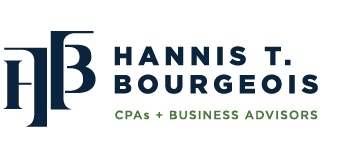Education and Health Tax Benefits You Should Know About in the One Big Beautiful Bill
On July 4, President Trump signed the One Big Beautiful Bill Act (OBBBA) into law, introducing a wide range of changes to the tax code and various government spending initiatives. To help make sense of what this means for you, we’ll be breaking down the key provisions and their implications in a series of blog posts.
In this post, we’ll explore the most impactful education and health-related tax benefits and how they could affect your financial planning.
Education Benefits
K-12
- 529 Plan Flexibility Expanded: Families can now withdraw up to $20,000 per student per year tax-free from 529 plans, which is double the previous limit. Funds can now cover tutoring, online learning tools, test fees, dual enrollment, and therapies for students with disabilities, offering more flexibility for modern learning needs.
- School Choice Tax Credit: Taxpayers can claim a nonrefundable $1,700 federal credit for donations to scholarship organizations that support private school, homeschooling, and other non-public education options, encouraging broader support for school choice.
Higher Education
- Tax-Free Employer Student Loan Payments: Employers can now permanently contribute up to $5,250/year toward employees’ student loan debt, tax-free. This popular benefit, once temporary, is now a long-term tool for reducing education debt.
- 529 Plans for Career Training: 529 funds can now be used tax-free for approved credentialing and workforce development programs, including military certifications and state-licensed training, expanding their value beyond traditional college expenses.
Health Benefits
- HSA Eligibility Expanded: Starting in 2026, individuals enrolled in Bronze or Catastrophic ACA plans, as well as those in Direct Primary Care (DPC) arrangements with monthly fees under $150 (individual) or $300 (family), can contribute to Health Savings Accounts (HSAs). DPC fees also qualify as HSA-eligible medical expenses.
- Permanent Telehealth Coverage for HDHPs: High-deductible health plans (HDHPs) can now permanently cover telehealth services before the deductible is met—without disqualifying participants from contributing to a Health Savings Account (HSA).
- Increased Dependent Care FSA Limit: The annual contribution limit for Dependent Care Flexible Spending Accounts (FSAs) has increased from $5,000 to $7,500, effective January 1, 2026.
- Paid Family and Medical Leave (PFML) Tax Credit Made Permanent: The Act extends the PFML tax credit, giving employers continued incentives to offer paid leave. Under the new rules, employees may qualify after working at least six months and 20 hours per week. Employers can calculate the credit based on wages paid or PFML insurance premiums, and state or local paid leave mandates now count toward meeting the credit’s eligibility requirements.
- New “Trump Account” for Children: Parents, relatives, and others can contribute up to $5,000 per year in after-tax dollars into “Trump accounts,” with funds growing tax-deferred until the child turns 18. Children born between 2025 and 2028 receive $1,000 in seed money, and eligible children are automatically enrolled if no account is opened on their behalf.
HTB’s tax professionals are here to help you make the most of these benefits while staying compliant with IRS and state rules. We will continue to share insights on the newly enacted OBBBA in the coming weeks. In the meantime, please don’t hesitate to reach out with any specific questions — we’re here to help you navigate these changes with confidence.

